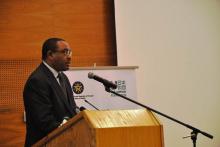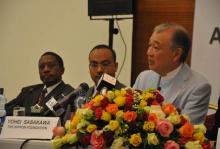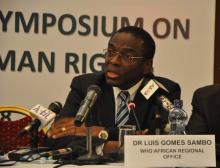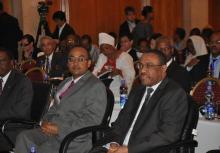End Stigma and Discrimination against People Affected by Leprosy and their families
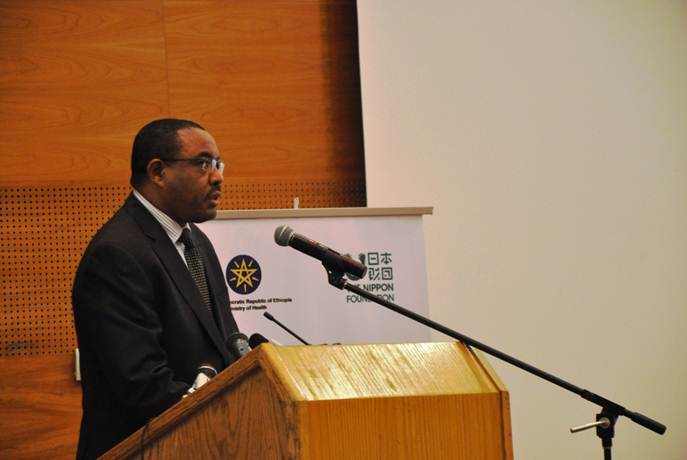 Addis Ababa, 18 September 2013 –The Prime Minister of Ethiopia, His Excellency. Mr Hailemariam Desalegn, has underscored the need to fight stigma and discrimination against people affected by leprosy and their families.
Addis Ababa, 18 September 2013 –The Prime Minister of Ethiopia, His Excellency. Mr Hailemariam Desalegn, has underscored the need to fight stigma and discrimination against people affected by leprosy and their families.
The Prime Minister was speaking at the Third Symposium on Leprosy and Human Rights on Wednesday in Addis Ababa. He expressed concern that many people affected by leprosy fail to seek timely treatment due to fear of discrimination, resulting in low rate of diagnosis and missed opportunities. He emphasized the need for action to tackle stigma and discrimination against those affected by the disease.
In a video message, the United Nations Secretary General, Ban Ki-Moon, welcomed the Symposium and called upon all actors, governments and partners to fight stigma and discrimination associated with leprosy.
Speaking at the event, WHO Goodwill Ambassador for the Elimination of Leprosy and Chairman of The Nippon Foundation, Mr Yohei Sasakawa, commended the World Health Organization for its efforts to tackle the disease. He also conveyed deep appreciation to the WHO Regional Director for Africa, Dr Luis Sambo, for his dedication to the fight against leprosy in the Region.
In his address to the Symposium, Dr Sambo stressed WHO’s commitment to ridding Africa of leprosy and working in collaboration with partners to end discrimination and stigma against affected persons and their families. He said: “The time has come for all of us – governments, partners, actors – to change the image of leprosy.”
The event was attended by over 200 participants including Dr Mustapha S Kaloko, African Union Commissioner for Social Affairs, His Excellency Mr Hiroyoki Kishino, Ambassador of Japan, Dr Keseteberhan Admasu, Minister of Health of Ethiopia, development partners, civil society and people affected by leprosy.
_______________________________________________
For more information, please contact: Dr Abebayehu Assefa abebayehua [at] et.afro.who.int Tel: +251-911 500 324 or Loza Mesfin lozam [at] et.afro.who.int Tel: +251-911 144 194.



